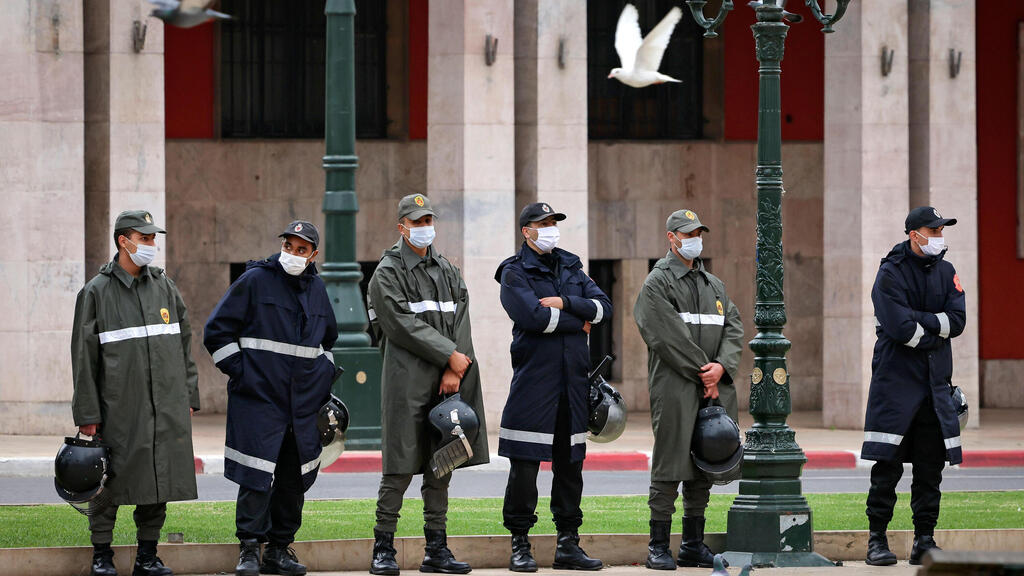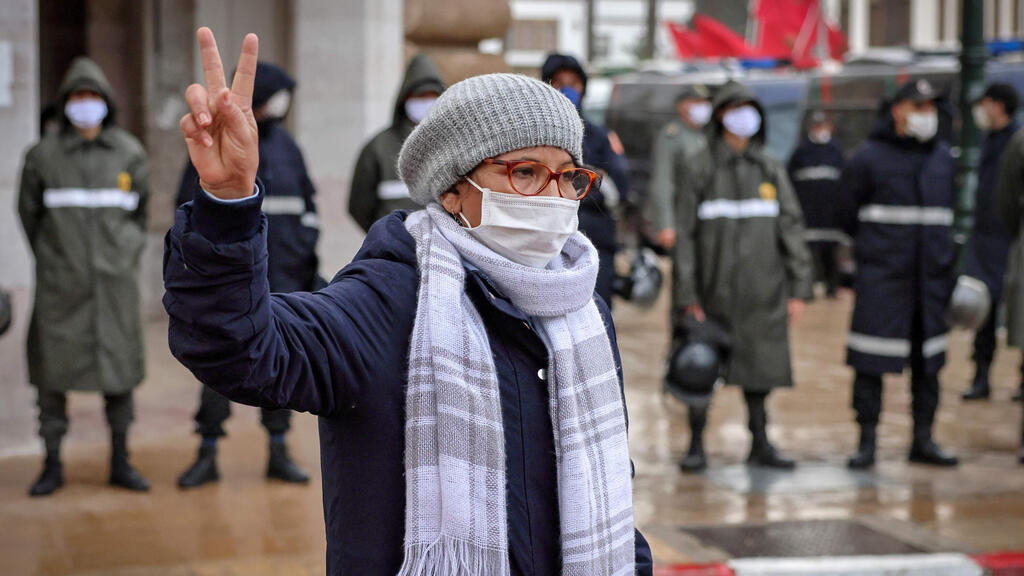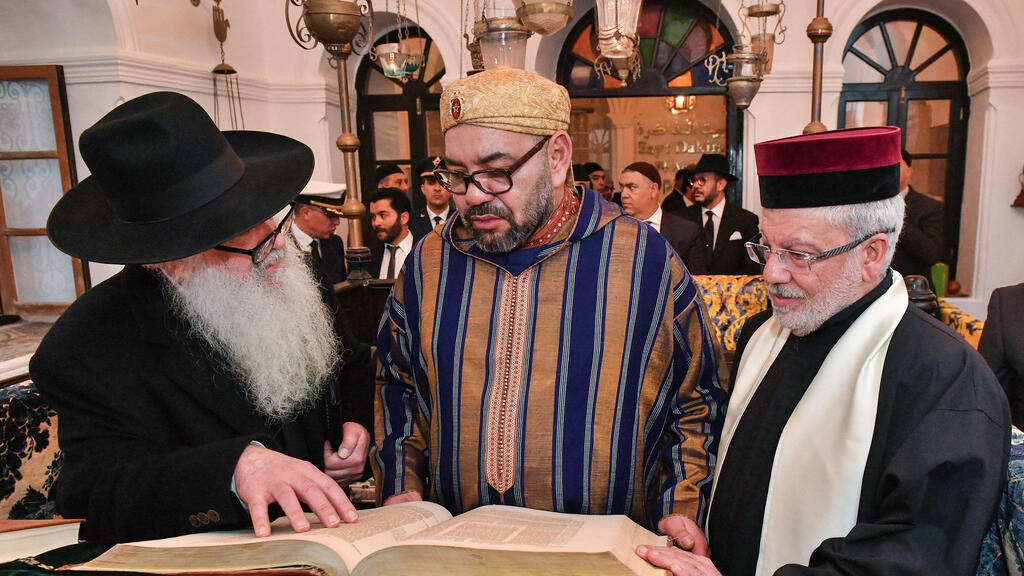Moroccan authorities on Monday prevented a protest in the capital Rabat against the kingdom's move to normalize ties with Israel following a deal brokered by U.S. President Donald Trump.
A heavy police presence backed by water cannons and anti-riot forces deployed in the main avenue leading to Parliament square, where a group of pro-Palestinian rights organizations had planned the sit-in.
3 View gallery


Security forces block an avenue in front of the parliament building to stop a demonstration against normalizing relations with Israel,
(Photo: AFP)
Police prevented demonstrators from reaching the square.
Two prominent activists, Sion Assidon, Morocco coordinator for the international Boycott, Divestment, Sanctions (BDS) movement, and lawyer Abderrahman Ben Amrou, were escorted away by authorities and asked to leave the area.
"Unfortunately, political normalization... comes after a long process of economic, agricultural, tourism and academic ties," Assidon, a Moroccan Jew, told Reuters. BDS is a group that calls for economic pressure on Israel to end what they claim is the occupation of Palestinian land.
3 View gallery


A woman flashes the victory sign while security forces block an avenue in front of Morocco's parliament building to stop a protest against the resumption of relations with Israel
(Photo: AFP)
There are nearly 1 million Jews hailing from Morocco in Israel and last year 70,000 visited the kingdom, which recognizes the Jewish community as a constituent of its national identity.
A local authority source said the protest was not authorized, citing a COVID-19 emergency decree.
Hassan Bennajeh, a leading member of the outlawed Adl Wal Ihssane, one of several organizations which called for the protest, said the ban reflected a "weak political position", saying that authorities had allowed a gathering in support of the deal in the same place on Sunday.
3 View gallery


King Mohammed VI (C) during a visit to the "Bayt Dakira" (House of Memory) museum, in the Atlantic coastal city of Essaouira
(Photo: Reuters)
A core element of the deal was U.S. recognition of Moroccan sovereignty over the Western Sahara. A decades-old dispute over the territory has pitted Morocco against the Algeria-backed Polisario Front, which seeks to establish an independent state.
A rally was held on Saturday in Western Sahara's largest city Laayoune by the opposition Istiqlal party bringing together some 30,000 people in support of the deal.
The main political parties in Morocco have welcomed the deal with Israel and the U.S. recognition of Moroccan sovereignty. Islamist groups have rejected normalization.
First published: 20:57, 12.14.20

